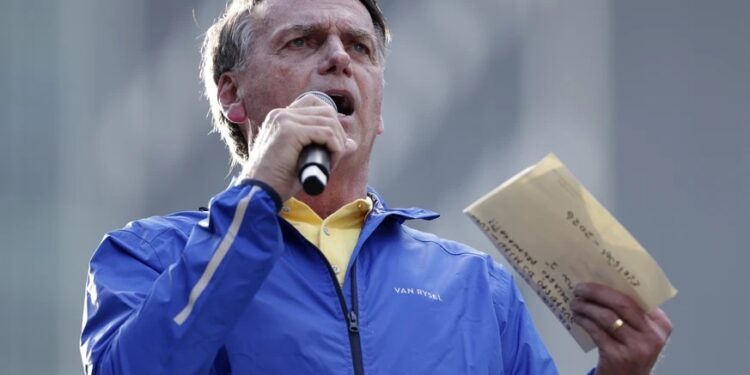Bolsonaro Faces Supreme Court Trial: Coup Plot Allegations Rock Brazil
In a significant development for Brazilian politics, former President Jair Bolsonaro is set to face trial in the Supreme Court over serious allegations related to a coup attempt. This trial, which has captured national and international attention, raises critical questions about the integrity of Brazil’s democracy and the future of its political landscape.
Background of the Allegations
The allegations against Bolsonaro stem from events surrounding the 2022 presidential elections, which he lost to current President Luiz Inácio Lula da Silva. Following his defeat, Bolsonaro and his supporters propagated claims of widespread electoral fraud, despite a lack of substantial evidence. This narrative culminated in a series of protests that escalated into violent clashes, particularly on January 8, 2023, when rioters stormed government buildings in Brasília.
The Supreme Court’s investigation focuses on whether Bolsonaro incited these actions and sought to undermine the democratic process. The court is examining evidence, including social media posts and public statements made by Bolsonaro and his allies, to determine if they amount to an attempt to orchestrate a coup.
Implications for Brazilian Democracy
The trial’s implications are profound. Brazil has a history of military rule and political turmoil, and many citizens fear that Bolsonaro’s actions could lead to a regression into authoritarianism. Democratic institutions have been tested in recent years, with Bolsonaro often clashing with the judiciary and media.
Political analysts argue that this trial could serve as a pivotal moment for Brazil. If the Supreme Court finds Bolsonaro guilty, it could set a precedent for holding former leaders accountable for undermining democracy. Conversely, an acquittal may embolden his supporters and further polarize the already fractured political landscape.
Public Reaction
Public response to the trial has been mixed. Supporters of Bolsonaro view him as a champion of conservative values and argue that the trial is politically motivated. They contend that the judiciary is overstepping its bounds and infringing on the rights of political leaders. Protests in support of Bolsonaro have been organized, showcasing a significant faction of Brazilian society that remains loyal to him.
On the other hand, many Brazilians see the trial as a necessary step to safeguard democracy. Activists and opposition leaders are calling for accountability and a reaffirmation of democratic norms. They argue that holding Bolsonaro accountable is crucial for restoring faith in Brazil’s political institutions.
The Role of Social Media
Social media has played a pivotal role in shaping public opinion around the trial. Bolsonaro’s supporters leverage platforms like Twitter and Facebook to rally support, while opponents utilize these same platforms to criticize him and mobilize protests. The spread of misinformation remains a challenge, as both sides share conflicting narratives about the events leading up to the trial.
Moreover, the trial’s proceedings are expected to be closely followed on social media, with live updates and commentary likely to influence public perception. This digital battleground underscores the increasingly polarized nature of Brazilian politics.
International Observations
The international community is closely monitoring the situation in Brazil. Political leaders and human rights organizations are expressing concern over the potential implications of the trial. Many see it as a litmus test for democracy in Latin America, especially in a region where several countries have experienced democratic backsliding in recent years.
Experts emphasize the importance of a transparent legal process. The trial could reinforce or undermine Brazil’s standing in international forums, where democratic governance is a crucial criterion for cooperation and support.
What’s Next?
As the trial unfolds, the focus will be on the evidence presented and the arguments made by both the prosecution and defense. Legal experts predict that the proceedings could last several months, with various witnesses called to testify. The outcome will likely have lasting effects on Brazil’s political landscape and could influence the upcoming elections in 2026.
Additionally, the trial may spark further political mobilization, with both supporters and opponents of Bolsonaro seeking to influence public opinion and political discourse. The stakes are high, and the trial could either pave the way for a stronger democratic framework or exacerbate existing divisions within Brazilian society.
Conclusion
As Jair Bolsonaro prepares to face the Supreme Court, Brazil stands at a crossroads. The outcome of this trial is not just about one individual; it is about the future of democracy in a nation that has fought hard to overcome its troubled past. Will Brazil emerge from this crisis with a renewed commitment to democratic principles, or will it descend further into political chaos? Only time will tell, but the eyes of the world will be watching closely as this pivotal moment unfolds.














































